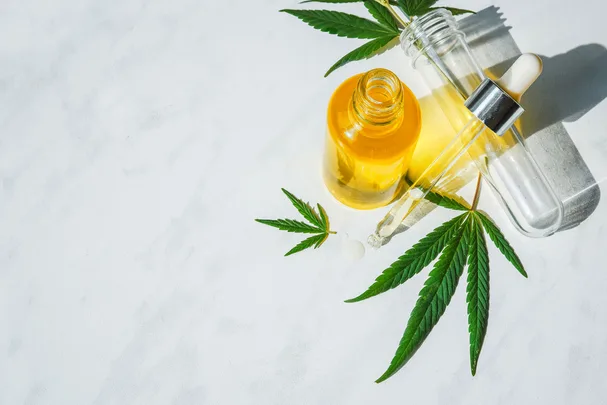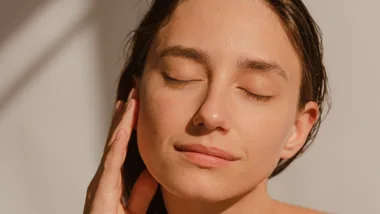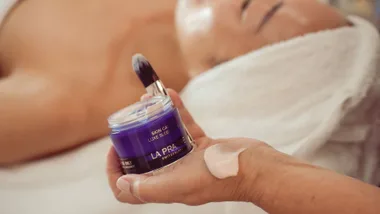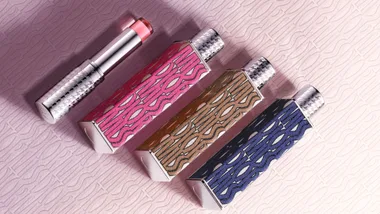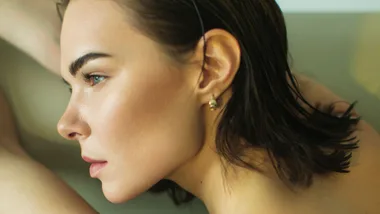Alessandra Ambrosio swears by it to calm her anxiety, Kim Kardashian uses beauty products infused with it, Emma Roberts soaks in it, and Mandy Moore rubs it on her feet before awards ceremonies. However, unlike Hollywood’s other wacky wellness trends (gummy bear hair vitamins and jade eggs, anyone?), CBD oil, or cannabidiol, has health experts excited.
Advocates of this new miracle oil claim that it may reduce inflammation, improve heart health, manage chronic pain, improve our sleep, cure acne and eczema, treat epilepsy and possibly even some cancers. Sounds impressive, doesn’t it? One Australian who certainly thinks so is health-food chef and wellness author Sally O’Neil, who has been using CBD oil successfully for the past year.
“Like many other women juggling a thousand things, I struggle with anxiety and the feeling of being overwhelmed,” says O’Neil. “So I use CBD to help me control that. I also use it to manage the pain and inflammation I have from a previous fractured ankle. To be honest, I’ve had some fantastic experiences with it.”
Is it illegal?
O’Neil is one of the few Australians who have tried CBD oil for themselves, as the product is illegal here. And to understand why, it’s important to know that CBD oil is derived from the seeds of the cannabis plant, though it’s imperative to note that it contains very little THC (the psychoactive element), so it won’t get you “high”. What it does contain, though, is rich amounts of a substance called “cannabidiol”, which is what makes the Australian government wary. And as such, it is illegal to sell, purchase or possess CBD products regardless of their THC content within Australia. The use of it here has been restricted to doctors prescribing CBD under the “Special Access Scheme”, at a substantial cost to the patient, to treat some conditions and alleviate suffering for fatal illnesses.
The thinking behind these restrictions is, according to the Therapeutic Goods Administration, the “conditions that it [cannabidiol] might be used to treat, such as epilepsy, are serious medical conditions and require medical diagnosis and oversight” unless prescribed by a doctor. And so far, despite the hype coming from overseas, that doesn’t look like it will change any time soon.
Where can I try it?
There are some countries where these kinds of restrictions have been lifted. In fact, CBD oil and products containing CBD (including face creams, tonics, soaps) are freely available over the counter in 11 states in the US, as well as Uruguay, Spain and Canada, which is where O’Neil first tried it. “I had heard so much about CBD oil, but I had to wait until I visited Canada last year to try it for myself,” she explains.
She had such promising results that she has since travelled back to Canada five times to research it; testing out different brands and ingestion methods, including vaping, smoking, transdermal and edibles. Last month, she even started studying at the US-based Sativa Science Club, with a curriculum specifically focused on the uses of medicinal cannabis.
O’Neil’s aim is to help elevate people’s understanding of CBD oil in Australia, however, there won’t be much use for her skills here unless the Office of Drug Control relaxes the law surrounding it. The problem, according to O’Neil, is that this current legislation is leaving Australians wanting to try CBD oil with the only option to access it on the black market, which is risky and illegal.
Does it work?
Legality isn’t the only thing in question. CBD’s efficacy is also under scrutiny. Michael Farrell, director of the National Drug and Alcohol Research Centre in Sydney, has admitted that, to date, studies into the benefits of CBD oil haven’t been conclusive. “One of the problems is that some of these conditions are hard to research and measure,” he explains. “For instance, pain is a highly subjective thing, so actually getting very good measures of pain and understanding where the effects are can be quite complicated.”
Nutritional medicine practitioner Fiona Tuck agrees, saying that while it could be beneficial to some people, it’s hard to tell who they might be. “There is a lot of hype around CBD oil, and the reviews are mixed,” she says. “Some people have had fabulous results, while others have not had much success. It is important to remember that this is no miracle cure and we cannot take a ‘one-size-fits-all’ approach. What works for one person, may not work so well for another.”
What’s next for CBD?
Tuck further explains that while the evidence and research for the different uses and benefits of CBD oil is still in its infancy, the multitude of benefits proposed is looking very promising, particularly in the field of cancer research. So far, there has been tentative evidence that CBD oil might not only assist with nausea associated with treatment but could also increase the potency of cancer drugs and possibly reduce tumour growth.
A study in Oncotarget biomedical journal earlier this year found that CBD oil could potentially provoke cell death, making cancer cells more sensitive to radiation without affecting healthy cells. However, experts warn that CBD isn’t being considered as a substitute for conventional drugs, and the research is still under review.
In the meantime, CBD oil and its potential benefits are limited to those living in countries where it’s legal. So, where does that leave Australians? Well, if you’d like to try CBD for yourself, you’ll need to book your next holiday to Canada, Spain or Uruguay. Sigh…
